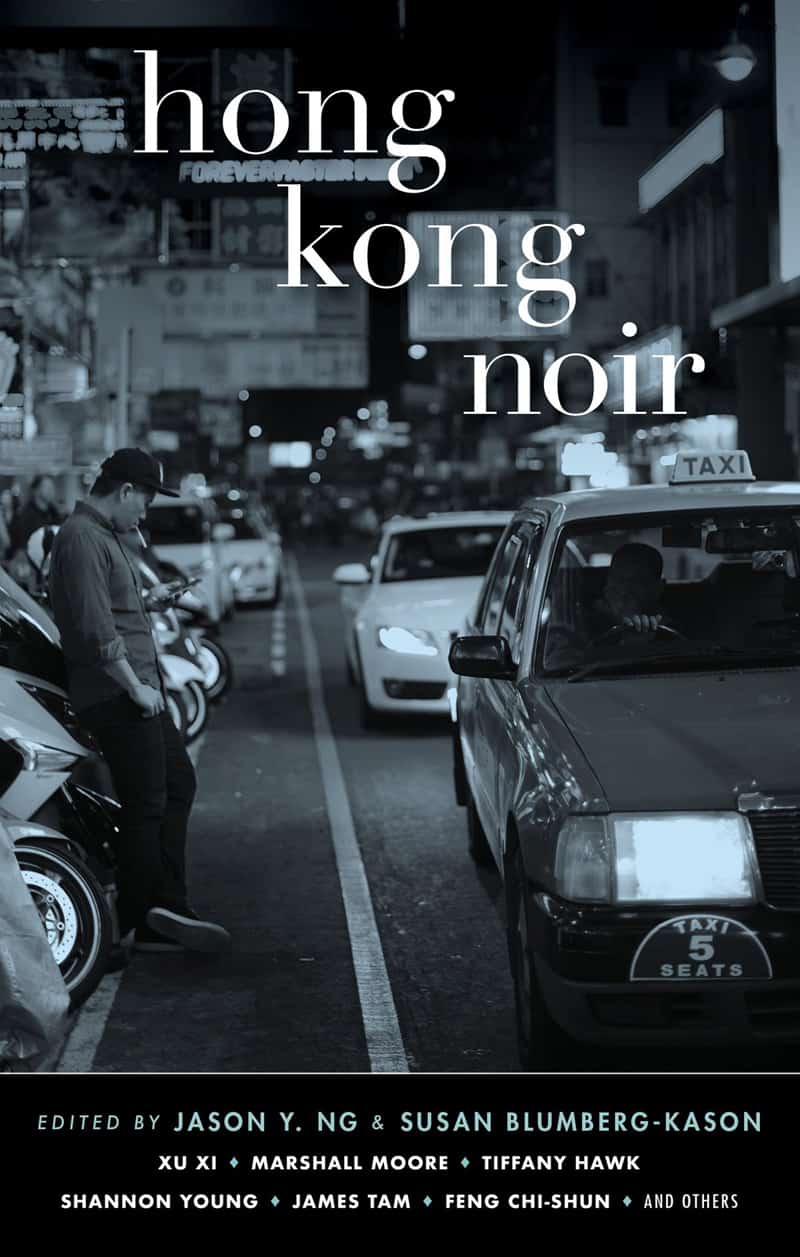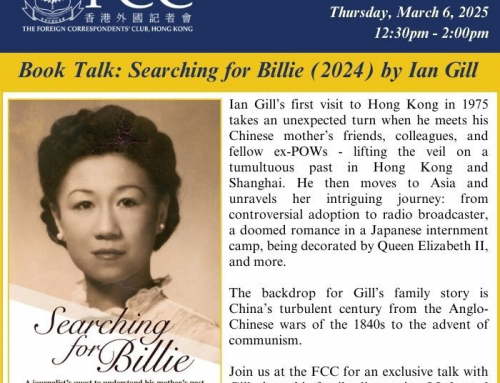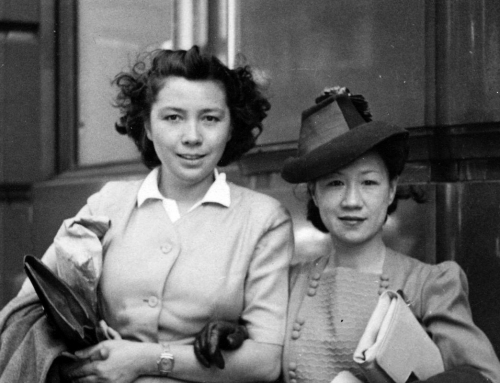Here we present an excerpt from Hong Kong Noir, an anthology of noir stories set in Hong Kong and written by a dozen authors. Each story takes place in a different district of the city. This one, by Carmen Suen, is set in Wah Fu, a housing estate on the southwest coast of Hong Kong Island.
Co-editor Susan Blumberg-Kason says:
Carmen Suen’s “Fourteen” brings the reader to a more innocent time in the 1980s. Hong Kong public housing had expanded and the decades of squatter villages were becoming a thing of the past. But it was still difficult to be poor, as it always is, especially when the government doesn’t care. “Fourteen” tells the story of a young girl from a broken home in Hong Kong’s first public housing estate that provided private bathrooms and kitchens. Even with these “luxuries”, the vulnerable still struggle to find happiness and meaning in Hong Kong. This is the story of one girl who seeks to fine a place in the 1980s, yet the same story could be told today.
Fourteen
by Carmen Suen
Wah Fu
The elevator door opened on the fourteenth floor. Siu Wan shuffled out and headed toward her apartment, number 1424, where her family had been living since she was a baby. When they first moved in,Wah Ming House was the newest building in Wah Fu Estate. It was a hopeful time.
But today had not been a good day for Siu Wan, and it had nothing to do with the number fourteen, as one might suspect. Fourteen, sup sei, is not the most auspicious number in Cantonese culture, especially in Hong Kong. It sounds like sut sei—must die. Some developers would skip the fourteenth floor on their buildings, choosing instead to have the fifteenth floor immediately above the thirteenth. Not the case for government housing like Wah Fu Estate. The government most certainly didn’t give a damn whether residents in housing projects lived or died based on superstitious beliefs.
For Siu Wan, fourteen or not did not make any difference. It was the same tiny apartment with no privacy no matter the number. Every unit in the building was the same 300-square-foot cube with a kitchen, a bathroom, a balcony, and an open space in the middle with barely enough room for a dresser, a double bed, a bunk bed—or two, depending on how many kids and in-laws lived there—and the all-important round folding table that served as a dining table–cum–homework desk. In most cases, the table had to be folded up when not in use, so as to make room for TV viewing. To save space, some families would forgo chairs and sat on their beds when they were eating or working at the table. The only separation between the living space and the “bedroom,” if you could call it that, would be some curtains hanging from the ceilings to block one or two sides of the beds to create some sort of private space. That is, if the parents cared about privacy at all. Privacy was a luxury not everyone in Hong Kong understood, especially when one was poor.
It could have been much worse for the poor. The government did try to improve social welfare after the 1967 leftist riots and Wah Fu was an ambitious attempt to improve the standards of public housing in the territory. It was the first to have a kitchen and a bathroom in each unit. Dubbed “New Town,” Wah Fu was also the first public housing estate to have its own wet market, shopping mall, schools, public library, parking garage, and bus terminal. It was no exaggeration to call it a town. When the eighteen buildings were completed in 1978, about fifty thousand people moved into the development.
If that wasn’t enough to tout Wah Fu as one of the best public housing estates in Hong Kong, there was also the million-dollar location. There’s a reason why Wah Fu Estate was called the “poor men’s mansions.” It was the only public housing development in Hong Kong that had full ocean views. A couple of miles away was Victoria Road, where some of the wealthiest in the city lived. Of course, it would be naive to think the government chose that location for Wah Fu because they believed the poor had the right to live well. The truth was, no other developer would build anywhere near Waterfall Bay or Book Bo Wan. There had always been rumors that the ocean was haunted. The nearby Kellet Bay was allegedly a dumping ground for dead bodies during the Japanese occupation. Despite Wah Fu’s good feng shui—having the sea on one side and the hills on the other—there was too much to risk developing a high-end residential project there.
Obviously, none of these were any of Siu Wan’s concerns. In fact, like most other kids in Wah Fu, she quite enjoyed all the ghost stories that were circulating around. If only she had friends she could share these stories with.
To Siu Wan, ghost stories were just that—stories. If she were to believe in every superstition in Chinese culture, she might as well not do anything, which, on this particular day, was not such a bad idea. Sure, the elevator smelled like urine and was covered in graffiti of every curse word you could imagine, and she was drenched in sweat after walking home from school in the sweltering heat. But that was nothing unusual. What made it such a dreadful day was that it was Siu Wan’s last day of school as a primary school student. She was going to start middle school after the summer ended.
Siu Wan did not look forward to the summer or to middle school. Although she was somewhat relieved there would be no school in the coming months, it meant having to spend more time at home with her older brother Chi Wan. Not that Siu Wan disliked her brother, but it wasn’t exactly a twelve-year-old girl’s dream to hang out with her fifteen-year-old brother all summer long.
Other kids went to the park and did fun things with their families when school was out. That would have made summer much more bearable. Unfortunately for Siu Wan, that was not an option. She hadn’t seen her dad in years, and her mom, Mrs. Wong, worked two jobs just to make enough money to pay the rent and not much else. Mrs. Wong had neither the time nor the extra cash to spend on fun things. Fun was as much a luxury as privacy. When you’re poor, you learn to live without both.
Like most girls her age, Siu Wan liked to wear nice clothes and feel pretty. She didn’t mind hand-me-downs from relatives and neighbors. She knew she couldn’t afford new clothes, and she was fine with that. The problem was that her clothes always looked dingy. Mrs. Wong could never find time to do the laundry, and so Chi Wan, being the older sibling, had to do it. No matter how hard he tried to clean them, there always seemed to be a grayish tint on the clothes. Kids at school didn’t like to play with Siu Wan because they thought she was dirty. Neither did any other kids in the neighborhood. Except for Ah Yan.
Ah Yan was a seven-year-old girl who lived in Wah Hing House, just a couple of blocks from Siu Wan’s building. Siu Wan had met Ah Yan for the first time a month earlier when the younger girl was playing alone on the beach by Book Bo Wan, just a short walk from where they lived. Maybe it was getting dark. Maybe Ah Yan didn’t pay attention to Siu Wan’s clothes. Ah Yan did not think for a second that Siu Wan looked dirty. Much like Siu Wan, she only wanted to have a playmate.
What puzzled Siu Wan was why no one wanted to play with Ah Yan. At seven, Ah Yan was every bit as adorable as any other girl her age. She remembered that Ah Yan was actually popular at school before she got sick. She had been hospitalized and things changed for the worse after she got back from the hospital. No one was playing with Ah Yan anymore. She looked so lonely when Siu Wan saw her sitting on a big rock on the beach the day they became friends.
Siu Wan enjoyed the company of her new friend. It was nice to take a break from Chi Wan and hang out with a girl. Sometimes she would help Ah Yan braid her silky black hair. Other times they would paint each other’s nails with nail polish that Siu Wan took from one of Mrs. Wong’s drawers.
The two new friends would meet on the beach where they first met. It might have been a bit of a stretch to call Book Bo Wan a beach. It was more of a landing along the shoreline at the end of its namesake waterfall. Because it was small and quite rocky, there were usually not many visitors around, especially late in the evening. In the early 1970s, Book Bo Wan was a popular spot for the two local TV stations to film their martial arts dramas. The film crews stopped going there after the waterfall started to dry up. Once in a while, you would find someone fishing near the bottom of the waterfall or swimming in the bay. For the most part, it was quiet.
Siu Wan thought Ah Yan would be at the beach earlier in the day, as she didn’t expect her to have any homework on the last day of school. But she didn’t see her until sunset.
“Sorry ar, Siu Wan! I’m so late,” Ah Yan apologized when she finally showed up.
“It’s okay. But don’t tell me you had homework today!”
“No, my mom said it was too hot outside and wouldn’t let me out until the sun went down. Parents can be so ma fan.”
“Well, at least your mom cares enough to be a pain in the butt! Mine is too busy working and who knows what else she’s doing. She’s never home.”
“Okay, okay, enough about the parents. Let’s do something fun! Hey, have you heard Leslie’s new song ‘Monica’?”
“Of course I have. I love it! I just saw his music video. Let me show you his dance moves.”
The girls started dancing and singing to the tunes of the Cantopop. Thanks! Thanks! Thanks! Thanks! Monica! Who can ever replace you? At the chorus, Siu Wan waved her right arm up in the air, her left hand holding onto her waist as she swung her hips from side to side. Ah Yan, dancing right beside her friend, was trying hard to keep up. They bumped into each other at the hips and the girls could not help but burst into laughter.
“That was so much fun,” said Ah Yan. “Thanks, Siu Wan.”
“Yeah, it was fun!” Siu Wan replied as she affectionately patted Ah Yan’s head. “It’s getting late. I’d better get home before my mom does. She’s been in a bad mood lately. I don’t want to get in trouble.”
“I should probably go home too,” said Ah Yan. “Will I see you tomorrow?”
“Sure! See you tomorrow!”
The two waved goodbye and headed home in opposite directions.
Sharpen scissors! Sharpen knives! Sharpen scissors! Sharpen knives!
Siu Wan woke up to the roving whetter’s holler for business. Around ten every morning, the old man would walk from floor to floor, carrying his tool bag on his bent back, advertising his trade with his booming call. Housewives who needed their knives or scissors sharpened would stop him and ask for his service.
“Aargh!” said Siu Wan from the lower bunk bed. “Why does he have to be so early and so loud? People are still sleeping!”
“You should probably get up anyway,” said Chi Wan. “It’s ten already. I’ve made some congee for breakfast. You should eat it before it gets cold. I’m going downstairs to play ping-pong with the boys. See you later!” He grabbed his paddle and dashed out of the apartment.
Siu Wan let out a big yawn and got up to get some congee. She turned on the TV and started watching a rerun of an old black-and-white movie starring Chan Po Chu. She had watched the same movie several times over the last few years.
“This is so boring!” Siu Wan let out another yawn.
She could hear kids running up and down the hallway, playing hide-and-seek. But it was no ordinary hide-and-seek. Those who grew up in public housing in the seventies and eighties would know this version of the game. Sometimes more than twenty kids from different households in the same building would join in. Wah Ming House was designed in the slab style, which meant there was a long, narrow corridor in the middle of two rows of apartments. On both ends of the building, there were staircases. There was also an enclosed stairwell behind the elevator chute in the center of the building. There were not many good hiding spots, but in a way, it was almost like a maze, only vertical. Kids got a thrill from zipping through different floors, trying to dodge the seeker.
Siu Wan thought about joining them, but quickly decided against it, as she did not want to be rejected again.
She turned the TV off and got up to wash the dishes. Ah Yan won’t be able to come out until late in the afternoon, she thought. I need to find something to do.
After freshening up, Siu Wan went downstairs to join Chi Wan and his friends. She was not a big fan of ping-pong, but she just wanted some company.
It was the first day of the summer break for most kids in the neighborhood. All four ping-pong tables on the ground floor of Wah Ming House were occupied by different groups of kids from age six or so to the late teens. Because not every building in Wah Fu Estate had ping-pong tables, Wah Ming House became a popular destination for kids. It also helped that Wah Ming was located by the water. The area where the ping-pong tables were had an open design. A breeze could flow freely through. When the kids were getting too hot from playing too hard, the sea breeze felt better than any air-conditioning.
At the ping-pong tables, Siu Wan was one of the few female players or spectators. Chi Wan was playing with his usual gang of fifteen-year-olds, all classmates of his. Siu Wan noticed a boy she did not recognize. He looked a little older than the rest of the group. He was sitting on the side, not chanting and laughing like Chi Wan’s other friends. He was smoking a cigarette and looked like he was deep in thought. At that moment he looked in Siu Wan’s direction. She quickly turned away, pretending to tie her shoelaces and hoping he didn’t catch her staring.
“Hi,” a coarse voice said.
Siu Wan looked up and there he was, sitting right next to her.
“Hi.” Her voice quivered a little.
“I haven’t seen you here before—and you should know I never forget a pretty face. What’s your name?”
“Er . . . my name is Siu Wan.” She wanted to say something clever, and could feel her face turning red.
“Hi, Siu Wan. I’m Tony,” said the boy. “Do you play ping-pong or do you just watch?”
“I don’t usually play—the boys don’t like to play with me because I’m a girl. I just come here to watch my brother. How about you? You don’t look like you’re here to play ping-pong either.”
“Ha! Why do you think I don’t play? I’m actually pretty good,” said Tony with a smirk. “But today I’m here to watch my little bro. He’s playing with that kid in the white tank top.”
“Really? Sai B is your brother? The one playing against my brother?” laughed Siu Wan. “How come you’re so tall and he’s so small?”
“He’s my half brother—we have different dads.” Tony exhaled a long puff.
There’s a certain sadness in his eyes, Siu Wan thought. She regretted immediately that she’d made that joke. She thought about her own divorced parents and knew firsthand how difficult it was to grow up in a single-parent household. But with a stepparent and a half brother? That must be so much more complicated. She wanted to say something witty to make Tony laugh, but couldn’t come up with anything remotely funny. All she could do was watch him smoke and imagine the hardship he’d been through.
Out of nowhere, laughter and cheers erupted from the crowd below and brought Siu Wan out of her thoughts. Chi Wan had beaten Sai B in a close game and the crowd was in a frenzy. Paddles were flying left and right. Everyone was cheering around Chi Wan. Siu Wan saw the excitement in her brother’s face. She could not remember the last time he’d been this ecstatic. She wanted to feel happy for him but all she could think about was how she could make Tony smile.
“This is too loud!” Tony said. “Do you want to go get some red bean ice with me?”
“Sure!” Siu Wan shouted out with joy. She could almost taste the crushed ice, red beans, and sweet evaporated milk. But then she hesitated. “Oh, wait . . .”
“What’s the matter?” asked Tony.
“Well . . . er . . . I . . . er . . . don’t have any money.” Siu Wan could feel the heat on her cheeks. She didn’t know what to do so she kept her face down. It was too embarrassing to look him in the eye now. She wished she had brought the five dollars her grandmother had given her on her birthday last month. That would have been more than enough to pay for her own drink and maybe even get a daan taat.
Tony lifted her chin up and said, “Don’t worry, it’s on me!”
Did he just wink at me? Siu Wan couldn’t stop thinking about it while walking with Tony to the neighborhood bing sut.
When the pair finally sat down at the café, Tony ordered two red bean ices and two daan taats.
“Thank you for this. It’s so nice of you,” Siu Wan said.
“It’s nothing.” Tony lit up another cigarette. “I have a part-time job. It pays pretty well and I can afford to treat my friends.”
“Really? What’s your job?”
“I help a friend sell stuff. I’ll tell you more about it later. And hey, don’t be so nosy. Boys don’t like girls who ask too many questions. Ha-ha.”
“I’m not being nosy,” Siu Wan protested. “You brought it up yourself!”
“I’m just joking,” Tony chuckled. “Don’t leave the daan taat sitting there. It tastes better while it’s still warm.”
He handed her the egg tart and she took a small bite. She had had daan taats hundreds of times before. She’d even had some from this same café. But it tasted different this time. The pastry was still warm and she could smell the fragrance of the buttery crust and its soft custard. The yellow filling was just the right amount of sweetness and the crust was so flaky that the crumbs stuck to her lips when she bit into it. Siu Wan grabbed a napkin to wipe her mouth. The last thing she wanted was for Tony to think she was unsophisticated.
Hanging out with Tony soon became the best part of Siu Wan’s day. Every morning, except for Sundays when Mrs. Wong was home, she would meet him by the ping-pong tables or the playground by the wet market. Tony would take her to the bing sut and always treated. Siu Wan tried to pay him back with her own pocket money, but he wouldn’t let her.
“I have a job, you don’t,” he would say. “And we’re friends. Friends help each other. You would help me too, when I’m in need, wouldn’t you?”
“Of course I would,” said Siu Wan.
Tony introduced her to his friends. Within the first week of summer break, she had made more friends than she ever had in her entire life. But she hadn’t forgotten about Ah Yan, still her first and best friend.
“Is he handsome? Are you his girlfriend?” asked Ah Yan when Siu Wan told her about Tony.
“Don’t be silly! He’s just my friend!”
“But would you be his girlfriend if he asked you?” Ah Yan wouldn’t stop teasing her.
“I don’t know. It’s none of your business anyway. I’m going to punish you for asking too many questions!”
Siu Wan chased after Ah Yan. But Book Bo Wan was a small beach and it wasn’t difficult for Siu Wan to catch up with the smaller girl. When she finally grabbed her, Siu Wan started tickling Ah Yan, who tickled back. Both girls couldn’t stop giggling. When they were both exhausted from the struggle, they lay down on the sand, panting.
“Siu Wan, I’m so happy you’re my friend,” said Ah Yan, looking into the orange sky. “Please promise you’ll never leave me.”
Siu Wan turned her head to Ah Yan and gently brushed the bangs on the girl’s forehead. “Of course I’ll never leave you. Even if I had a million friends, or a million dollars, you would still be my best friend forever.”
* * *
Just as Siu Wan thought things were finally looking up, her home life started to unravel. Mrs. Wong was spending less and less time at home. When she was there, she would start drinking and screaming at her children.
“I can’t see the TV with your big head in front of me!”
“What do you mean you don’t have money for food? I gave you ten dollars last week! You’re fifteen, old enough to get a job. Stop asking me for money!
“Your skirt is too short. And stop using my makeup. You look like a prostitute!”
Siu Wan understood that her mother was exhausted and needed the alcohol to relax. What she did not understand was why she would always drink past the point of relaxation and get dead drunk. Chi Wan and Siu Wan learned quickly that it was best to keep their mouths shut when their mom was around.
It had been about a month since the beginning of summer vacation. Siu Wan was not sure if this was her best summer or her worst. In a lot of ways, it had been really great: she’d met Tony, made a ton of friends through him, hung out with teenagers who treated her like she was their peer. And she had a best friend who simply adored her. But her mom’s drinking problem had made her life miserable.
Ah Yan said Siu Wan could go home with her if she liked. “My mom would be thrilled to meet you. I’ve been talking about you for the last month!”
“Thank you, but I don’t think that would help. My mom would kill me if I don’t come home for the night.”
She told Tony about the situation when they were at the bing sut one afternoon, hoping he could offer her some words of advice, both as a mature teenager and as someone who was also from a broken family.
“I’m sorry to hear that, Siu Wan. You know, if you’re really unhappy, I do have something that could help,” said Tony.
“Really? What is it?”
“Remember I told you about my part-time job?”
“Yeah?”
“Well, I’m helping my friend sell medicine. There’s this one pill that can make sad people happy in a snap,” Tony said in a whisper.
“Are you talking about drugs? My teachers at school told us drugs are really bad for you.”
“Your teachers are wrong about this one. You see, if you take too much of anything, it’ll be bad for you. But this pill is safe—if you only take a little at a time. My friends and I have been taking it for a while. Nothing’s gone wrong. I actually feel much better! Can’t you tell I’m always calm and relaxed?”
Siu Wan looked intently at Tony. He seemed so genuine, and he’d been good to her since the day they met. Surely he wouldn’t do anything to hurt her, would he?
“I don’t want to force you to do anything. As your friend, I thought this might help you. It has worked great for me.” After a short pause, Tony added, “Why don’t you just keep this? If you don’t want to take it, that’s fine. But when you’re feeling really sad, just give it a try.”
“Thank you,” Siu Wan said hesitantly, as she carefully put the pill in her shirt pocket.
“Don’t be so sad. Let me buy you another daan taat to cheer you up.” Tony gestured to the waiter and ordered two more of her favorite dessert.
When Siu Wan went home at five o’clock that afternoon, she was planning to get some food from the kitchen before going out to meet Ah Yan at their regular hangout. Much to her surprise, Mrs. Wong was already home, and looking pretty drunk.
“Where have you been? Why weren’t you home? Who do you think you are, coming in and out of the house whenever you want? This is not a hotel!”
Siu Wan knew better than to say anything that might anger her mom. Chi Wan was not home yet. She would have no backup if Mrs. Wong started getting out of control. “I was just hanging out in the playground with some friends,” she said as calmly as she could.
“Friends? What friends? And where is your brother? You’re both ungrateful children! I should have left you guys when your dad split!”
Siu Wan did not want to hear any more of this. She knew this was not her real mother talking. As soon as she fell asleep, everything would be fine. Maybe some food might help.
“Would you like noodles? I can make some for us,” Siu Wan said timidly, then tiptoed across the room to the kitchen.
Mrs. Wong sat at the folding table watching TV while Siu Wan started cooking.
Clang! A loud noise from the kitchen woke Mrs. Wong from her zombie-like state. She jumped from her chair and rushed to the kitchen to see what had happened.
“I’m sorry, Mom. I dropped the lid. It was too hot,” Siu Wan said. “I’ll take care of it and I’ll make you some noodles.” As she bent to pick up the lid from the floor, she felt a rush through her left cheek. Before she could made sense of what was going on, she saw a tiny drop of blood on the floor and felt the cut on her lips.
“Forget about the noodles. I’m not hungry anymore. You can’t even make noodles without causing trouble! You’re worthless!”
Siu Wan could not quite comprehend what had just happened. All she was sure about was that she did not want to stay in the same room as her mom. She needed some fresh air. She needed to get away from this misery.
As she was stepping out of the kitchen, she saw a tiny blue disc on the grayish mosaic floor. It was the pill Tony had given her a couple of days ago. She picked it up, turned around, and poured herself a glass of warm water from the kettle sitting on the stove. If there was a time she needed a happy pill, this would be it. She took a deep breath and downed the pill with a big gulp of water.
Siu Wan felt a peacefulness she had not experienced in a long time. She remembered her mom screaming behind her when she was running down the corridor outside their apartment. She saw the shock and scrutiny in her neighbors’ faces when they peeked through the silver metal gates separating their homes from the corridor. But none of that mattered now. She was enjoying the sea breeze on a big rock while waiting for her best friend to come.
There was a weird vibe on the beach tonight. More people wandered about, and a small group was taking a late-evening swim. Yet with all the unusual traffic, the beach seemed quieter than ever. Siu Wan thought it might just be the effect of the pill that made her feel so serene. It really was a happy pill.
“Hey, Siu Wan! Over here!”
She turned around and saw Ah Yan waving at her from the water.
“When did you get here? I didn’t see you,” said Siu Wan.
“My mom and I were swimming off the coast. I started swimming back to shore when I saw you sitting there.”
“Why are so many people swimming here tonight?”
“I don’t know. I guess because it’s really hot today. You should join us!”
“No thanks,” said Siu Wan. “I don’t have my swimsuit with me.”
“Don’t worry, we brought big towels. You can dry yourself after the swim. It’s really fun!” pleaded Ah Yan. “Plus, my mom is right there. She’d like to meet you.”
Siu Wan didn’t want to disappoint Ah Yan. She had asked Siu Wan to go swimming with her a couple of times, but she kept saying no. Maybe the water would help her clear her head. She wanted to forget about what had happened at home. “Okay, I’ll join you!” she chirped as she jumped into the water.
Siu Wan woke up the next day feeling a little light-headed. It was three o’clock in the afternoon. She couldn’t believe she had slept that much. She also couldn’t quite remember what had happened after the swim with Ah Yan the night before. Her last memory was feeling cold water seep through her clothes. She sensed a calmness settling in that she hadn’t felt for a long time and assumed it must be a side effect of the happy pill. She got up from her bunk bed and went to the bathroom to freshen up.
The air was thick and humid. The forecast said a typhoon was heading toward Hong Kong. Siu Wan turned on the TV to watch the news. If the typhoon was coming, she should probably just stay home for the day.
“Typhoon Emma is on track to pass through Hong Kong. The Hong Kong Observatory is warning citizens to make appropriate precautions to protect their homes and be prepared for the typhoon to upgrade to a number eight by tomorrow morning.”
“A twelve-year-old girl drowned in Book Bo Wan in Wah Fu Estate last night. Traces of methaqualone were found in her body during an autopsy. No foul play is suspected. This is the second drowning incident at the beach this year.”
Siu Wan was shocked to see her picture on TV. What were they talking about? She felt very confused.
“In May of this year, a seven-year-old girl drowned in the same location. Residents in the area are very concerned about the safety of the beach. We talked to one mother who lived in the area.”
Siu Wan’s eyes were glued to the TV, trying to comprehend what this all meant. Then she saw a familiar face. It was Mrs. Chan. She lived just one floor below her, in apartment 1324.
“As a parent, I’m really concerned about all these accidents. You know they always say that Book Bo Wan is haunted. I tried not to give in to superstitious beliefs, but yesterday was the Ghost Festival and another girl drowned. It’s too much of a coincidence.”
Are they saying I’m dead? If I’m dead, why am I still here? Siu Wan decided to go back to the beach to find out.
On the beach, she was surprised to see Mrs. Wong and Chi Wan already there.
“Hey, Mom! Chi Wan! What’s going on?”
They didn’t answer. They were weeping as they threw paper treasures into a large tin can blackened by the fire burning inside of it. A trail of heavy smoke rose from the tin and merged with the dark clouds hanging low in the sky.
Siu Wan ran toward her mom and her brother. She needed to talk to them. Before she could reach them, however, someone tugged her hand and stopped her in her tracks. She turned around and saw Ah Yan looking up at her.
“Don’t get mad at me, Siu Wan. You said we’d be best friends forever. It’s going to be okay. We’re together now. I won’t ever leave you.”
Read more from Hong Kong Noir






Leave a reply